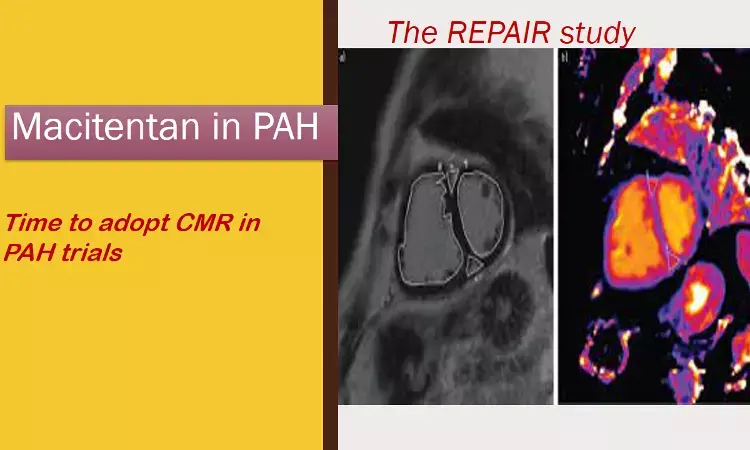- Home
- Medical news & Guidelines
- Anesthesiology
- Cardiology and CTVS
- Critical Care
- Dentistry
- Dermatology
- Diabetes and Endocrinology
- ENT
- Gastroenterology
- Medicine
- Nephrology
- Neurology
- Obstretics-Gynaecology
- Oncology
- Ophthalmology
- Orthopaedics
- Pediatrics-Neonatology
- Psychiatry
- Pulmonology
- Radiology
- Surgery
- Urology
- Laboratory Medicine
- Diet
- Nursing
- Paramedical
- Physiotherapy
- Health news
- Fact Check
- Bone Health Fact Check
- Brain Health Fact Check
- Cancer Related Fact Check
- Child Care Fact Check
- Dental and oral health fact check
- Diabetes and metabolic health fact check
- Diet and Nutrition Fact Check
- Eye and ENT Care Fact Check
- Fitness fact check
- Gut health fact check
- Heart health fact check
- Kidney health fact check
- Medical education fact check
- Men's health fact check
- Respiratory fact check
- Skin and hair care fact check
- Vaccine and Immunization fact check
- Women's health fact check
- AYUSH
- State News
- Andaman and Nicobar Islands
- Andhra Pradesh
- Arunachal Pradesh
- Assam
- Bihar
- Chandigarh
- Chattisgarh
- Dadra and Nagar Haveli
- Daman and Diu
- Delhi
- Goa
- Gujarat
- Haryana
- Himachal Pradesh
- Jammu & Kashmir
- Jharkhand
- Karnataka
- Kerala
- Ladakh
- Lakshadweep
- Madhya Pradesh
- Maharashtra
- Manipur
- Meghalaya
- Mizoram
- Nagaland
- Odisha
- Puducherry
- Punjab
- Rajasthan
- Sikkim
- Tamil Nadu
- Telangana
- Tripura
- Uttar Pradesh
- Uttrakhand
- West Bengal
- Medical Education
- Industry
Macitentan remarkably improves CMR indices of RV function in pulmonary hypertension, REPAIR study.

Right ventricular (RV) failure is the primary cause of death in pulmonary artery hypertension (PAH). Despite being the gold standard investigation for RV failure, cardiac MRI (CMR) is not routinely used in PAH patients.
In the recently published REPAIR study, Noordegraaf et al have provided robust evidence to support the potential use of CMR to assess RV cardiac function in future clinical trials in PAH. In addition to improving hemodynamic parameters (PVR, mPAP, cardiac index), PAH treatment with dual endothelin receptor antagonist macitentan as monotherapy or part of combination therapy resulted in improved RV function and structure. The study was recently published in JACC Cardiovascular Imaging.
Macitentan, approved for the long-term treatment of PAH, is recommended for use as monotherapy or combination therapy. The REPAIR (Right vEntricular remodeling in Pulmonary ArterIal hypeRtension) study aimed to evaluate the effect of macitentan on RV and hemodynamic outcomes in patients with symptomatic PAH, using CMR and right heart catheterization (RHC).
In this prospective, multicenter, single-arm, open-label, 52-week, phase 4 study, the effect of macitentan 10 mg, with or without phosphodiesterase type-5 inhibition, on RV remodeling and function and cardiopulmonary hemodynamics were studied.
Primary endpoints were change from baseline to week 26 in RV stroke volume, determined by CMR; and pulmonary vascular resistance, determined by RHC. Efficacy measures were assessed for all patients with baseline and week 26 data for both primary endpoints.
Macitentan treatment, alone or in combination with a PDE-5i, led to statistically significant and clinically relevant improvements in RV stroke volume (RVSV) and pulmonary vascular resistance (PVR) at week 26, with improvements in RVSV maintained at week 52. RV stroke volume increased by 12 mL and pulmonary vascular resistance decreased by 38%at week 26.
Improvements were also seen in the majority of the secondary and exploratory CMR (RV and LV variables and the RV/LV volumetric ratios), hemodynamic, and functional endpoints.
That beneficial changes were observed for both RV function (RVSV and RVEF) and structure (RVESV and RV mass) suggests that macitentan contributes to beneficial remodeling of the RV in patients with PAH.
This drug also improved hemodynamic parameters with significant reductions in PVR, mPAP and an increase in cardiac index. Patients who received macitentan as initial double combination therapy with a PDE-5i had numerically larger improvements than those initiating macitentan alone (either as monotherapy or sequential combination therapy), supporting the treatment approach recommended in the European Society of Cardiology/European Respiratory Society guidelines.
Improvements were also seen in several key clinical parameters in the REPAIR study; 6MWD significantly increased from baseline to week 26, and the majority of patients had an improvement in WHO functional class.
The most frequent adverse events (≥20% of patients) were peripheral edema (n = 19, 21.8%) and headache (n = 18, 20.7%).
The REPAIR study provides evidence that macitentan treatment significantly improves RV function and structure in patients with PAH. The consistent CMR results reported here, and in other studies, underscore the clinical relevance of this noninvasive imaging technique in monitoring PAH disease status and progression, and provide further confidence in CMR-assessed endpoints and their potential use in future trials.
Source: JACC Cardiovascular Imaging: DOI: 10.1016/j.jcmg.2021.07.027
MBBS, MD , DM Cardiology
Dr Abhimanyu Uppal completed his M. B. B. S and M. D. in internal medicine from the SMS Medical College in Jaipur. He got selected for D. M. Cardiology course in the prestigious G. B. Pant Institute, New Delhi in 2017. After completing his D. M. Degree he continues to work as Post DM senior resident in G. B. pant hospital. He is actively involved in various research activities of the department and has assisted and performed a multitude of cardiac procedures under the guidance of esteemed faculty of this Institute. He can be contacted at editorial@medicaldialogues.in.
Dr Kamal Kant Kohli-MBBS, DTCD- a chest specialist with more than 30 years of practice and a flair for writing clinical articles, Dr Kamal Kant Kohli joined Medical Dialogues as a Chief Editor of Medical News. Besides writing articles, as an editor, he proofreads and verifies all the medical content published on Medical Dialogues including those coming from journals, studies,medical conferences,guidelines etc. Email: drkohli@medicaldialogues.in. Contact no. 011-43720751


